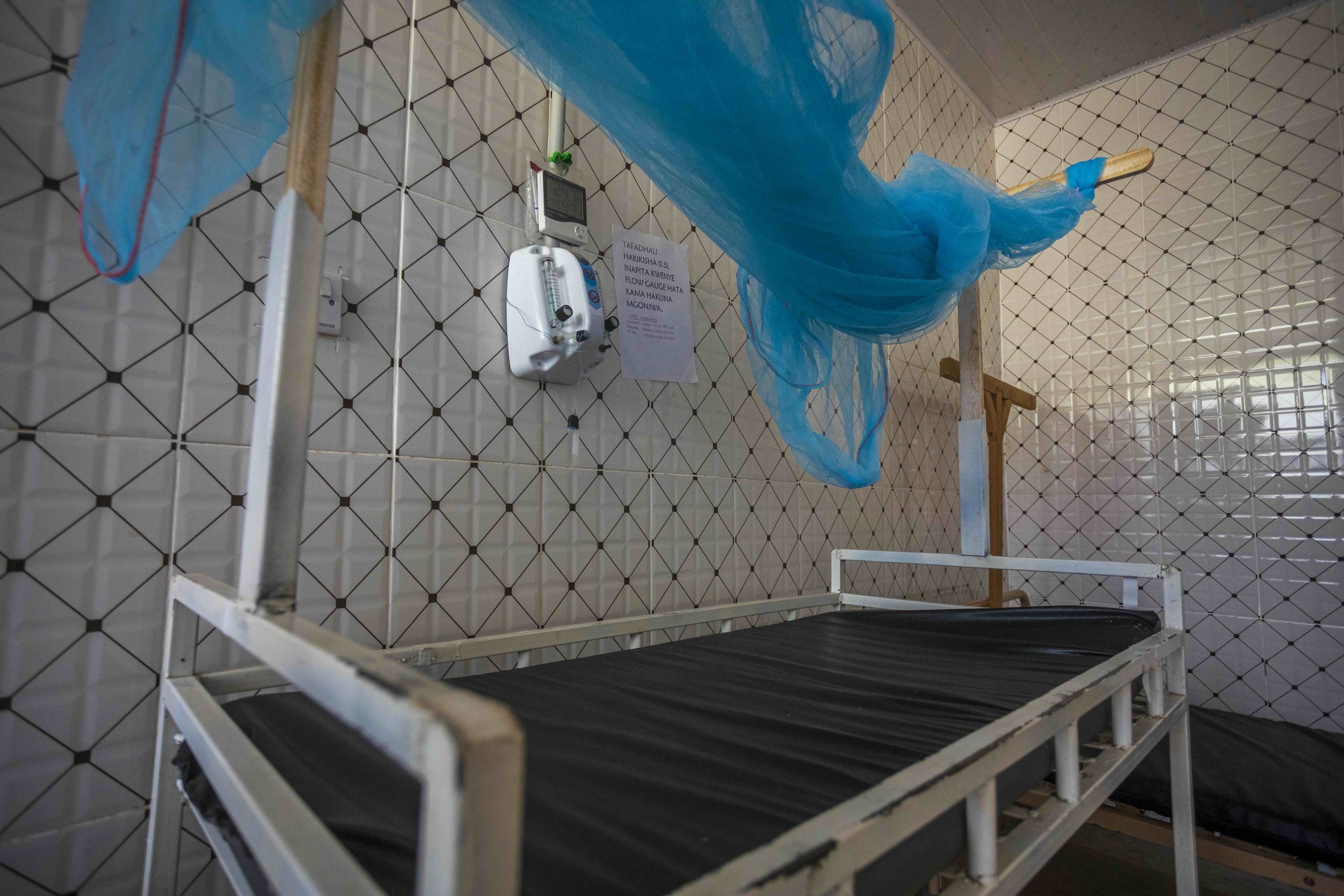A Life-Saving Breath in Remote Corners
The Journey of FREO2’s 10,000th patient, baby Emmanuel.
Maria and Emmanuel shortly after his one-month of oxygen therapy.
In the remote village of Laghangarer, Tanzania, where the landscape is defined by rugged, red stones and vast fields of onions and maize, the story of Emmanuel, our 10,000th patient, shines as a powerful testament to the profound impact of our work.
Emmanuel's arrival was anything but ordinary. Born two months premature and weighing just 1.4 kg, he came into the world in a place where survival is a daily struggle. The Askofu Hhando Health Centre in Mang’ola, where Emmanuel began his journey, is a small haven amidst the harshness of the environment. Its NICU, equipped with the FREO2 Oxygen Delivery System, stood as a critical lifeline in this remote corner of Tanzania.
The NICU Ward at Askofu Hhando Health Centre in Mang’ola.
Maria, Emmanuel’s mother, embodies resilience. At just 26, she had already faced a lifetime of challenges. Married at 17 and a mother by 18, Maria had given birth to her first two children via cesarean sections. Emmanuel, born naturally, presented new trials. Balancing her exhausting job as a labourer at a local hotel—with long hours of cleaning and washing—and walking an hour each day to work, Maria was no stranger to hardship. When labor began, she made a determined 40-minute walk to the health centre, driven by hope for her fragile newborn.
The moment Emmanuel was born, the initial joy of his arrival swiftly gave way to anxiety as he struggled with respiratory distress. Maria, unfamiliar with oxygen therapy and filled with fear, watched anxiously as her fragile newborn was placed under the care of the FREO2 system. The NICU, though modest with its two adult-sized beds and a small heater, was equipped with this life-saving technology that was critical to Emmanuel's survival. Thanks to the prompt delivery of oxygen, Emmanuel avoided the perils of a two-hour journey to the nearest referral hospital.
For the next month, Emmanuel’s life was sustained by the steady flow of oxygen. His progress was gradual but marked—he grew from a fragile 1.4 kg to a healthier 1.9 kg, a testament to the effectiveness of the care he received. Now, at almost one year old, Emmanuel is a lively and energetic child, bringing immense joy and relief to his family. Maria, who had been unable to celebrate her son’s birth due to his initial illness, is now preparing for a special cultural ceremony. In the Barabaig tradition, Emmanuel’s grandmother will honor him with a traditional song, a gesture filled with blessings and hope for his future.
The Barabaig, a proud sub-tribe of the Datooga people, are deeply connected to their land and their cattle-centric lifestyle. Their vibrant culture, reflected in their reddish-brown attire and intricate beadwork, embodies their resilience and fierce spirit. Emmanuel, now a symbol of hope and strength, represents the enduring spirit of his community.
Maria’s gratitude is heartfelt and profound. Reflecting on their journey, she expresses her relief and astonishment, saying,
Maria carries Emmanuel on her back while collecting firewood for home, a daily domestic task.
"My baby is doing really well, and I was not expecting such progress. The government should consider supporting FREO2's work and ensure all facilities are equipped with oxygen. Without it, my son would not be alive."
The Mang’ola facility, with its FREO2 oxygen systems, has become a beacon of hope, demonstrating the life-saving potential of medical oxygen.
Emmanuel’s story is not just a success—it is a vivid reminder of the importance of our Maximising Oxygen Miles (MOM) strategy. It highlights how every "oxygen mile," every logistical challenge, and every bit of support contributes to saving lives in the most remote and challenging environments. Emmanuel’s thriving health is a powerful illustration of our mission’s impact, inspiring us to continue our journey of transforming lives, one oxygen mile at a time, reaching ever further.




